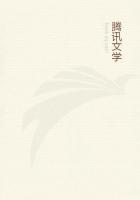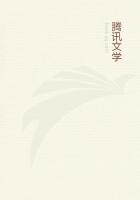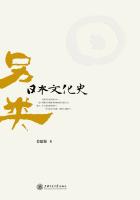3. But from comparing clear and distinct ideas. But if any one will consider, he will (I guess) find, that the great advancement and certainty of real knowledge which men arrived to in these sciences, was not owing to the influence of these principles, nor derived from any peculiar advantage they received from two or three general maxims, laid down in the beginning; but from the clear, distinct, complete ideas their thoughts were employed about, and the relation of equality and excess so clear between some of them, that they had an intuitive knowledge, and by that a way to discover it in others; and this without the help of those maxims. For I ask, Is it not possible for a young lad to know that his whole body is bigger than his little finger, but by virtue of this axiom, that the whole is bigger than a part; nor be assured of it, till he has learned that maxim? Or cannot a country wench know that, having received a shilling from one that owes her three, and a shilling also from another that owes her three, the remaining debts in each of their hands are equal? Cannot she know this, I say, unless she fetch the certainty of it from this maxim, that if you take equals from equals, the remainder will be equals, a maxim which possibly she never heard or thought of? I desire any one to consider, from what has been elsewhere said, which is known first and clearest by most people, the particular instance, or the general rule; and which it is that gives life and birth to the other. These general rules are but the comparing our more general and abstract ideas, which are the workmanship of the mind, made, and names given to them for the easier dispatch in its reasonings, and drawing into comprehensive terms and short rules its various and multiplied observations. But knowledge began in the mind, and was founded on particulars; though afterwards, perhaps, no notice was taken thereof: it being natural for the mind (forward still to enlarge its knowledge) most attentively to lay up those general notions, and make the proper use of them, which is to disburden the memory of the cumbersome load of particulars. For I desire it may be considered, what more certainty there is to a child, or any one, that his body, little finger, and all, is bigger than his little finger alone, after you have given to his body the name whole, and to his little finger the name part, than he could have had before;or what new knowledge concerning his body can these two relative terms give him, which he could not have without them? Could he not know that his body was bigger than his little finger, if his language were yet so imperfect that he had no such relative terms as whole and part? Iask, further, when he has got these names, how is he more certain that his body is a whole, and his little finger a part, than he was or might be certain before he learnt those terms, that his body was bigger than his little finger? Any one may as reasonably doubt or deny that his little finger is a part of his body, as that it is less than his body. And he that can doubt whether it be less, will as certainly doubt whether it be a part. So that the maxim, the whole is bigger than a part, can never be made use of to prove the little finger less than the body, but when it is useless, by being brought to convince one of a truth which he knows already. For he that does not certainly know that any parcel of matter, with another parcel of matter joined to it, is bigger than either of them alone, will never be able to know it by the help of these two relative terms, whole and part, make of them what maxim you please.
4. Dangerous to build upon precarious principles. But be it in the mathematics as it will, whether it be clearer, that, taking an inch from a black line of two inches, and an inch from a red line of two inches, the remaining parts of the two lines will be equal, or that if you take equals from equals, the remainder will be equals: which, Isay, of these two is the clearer and first known, I leave to any one to determine, it not being material to my present occasion. That which I have here to do, is to inquire, whether, if it be the readiest way to knowledge to begin with general maxims, and build upon them, it be yet a safe way to take the principles which are laid down in any other science as unquestionable truths; and so receive them without examination, and adhere to them, without suffering them to be doubted of, because mathematicians have been so happy, or so fair, to use none but self-evident and undeniable. If this be so, I know not what may not pass for truth in morality, what may not be introduced and proved in natural philosophy.
Let that principle of some of the old philosophers, That all is Matter, and that there is nothing else, be received for certain and indubitable, and it will be easy to be seen by the writings of some that have revived it again in our days, what consequences it will lead us into. Let any one, with Polemo, take the world; or with the Stoics, the aether, or the sun; or with Anaximenes, the air, to be God; and what a divinity, religion, and worship must we needs have! Nothing can be so dangerous as principles thus taken up without questioning or examination; especially if they be such as concern morality, which influence men's lives, and give a bias to all their actions. Who might not justly expect another kind of life in Aristippus, who placed happiness in bodily pleasure; and in Antisthenes, who made virtue sufficient to felicity? And he who, with Plato, shall place beatitude in the knowledge of God, will have his thoughts raised to other contemplations than those who look not beyond this spot of earth, and those perishing things which are to be had in it. He that, with Archelaus, shall lay it down as a principle, that right and wrong, honest and dishonest, are defined only by laws, and not by nature, will have other measures of moral rectitude and pravity, than those who take it for granted that we are under obligations antecedent to all human constitutions.

